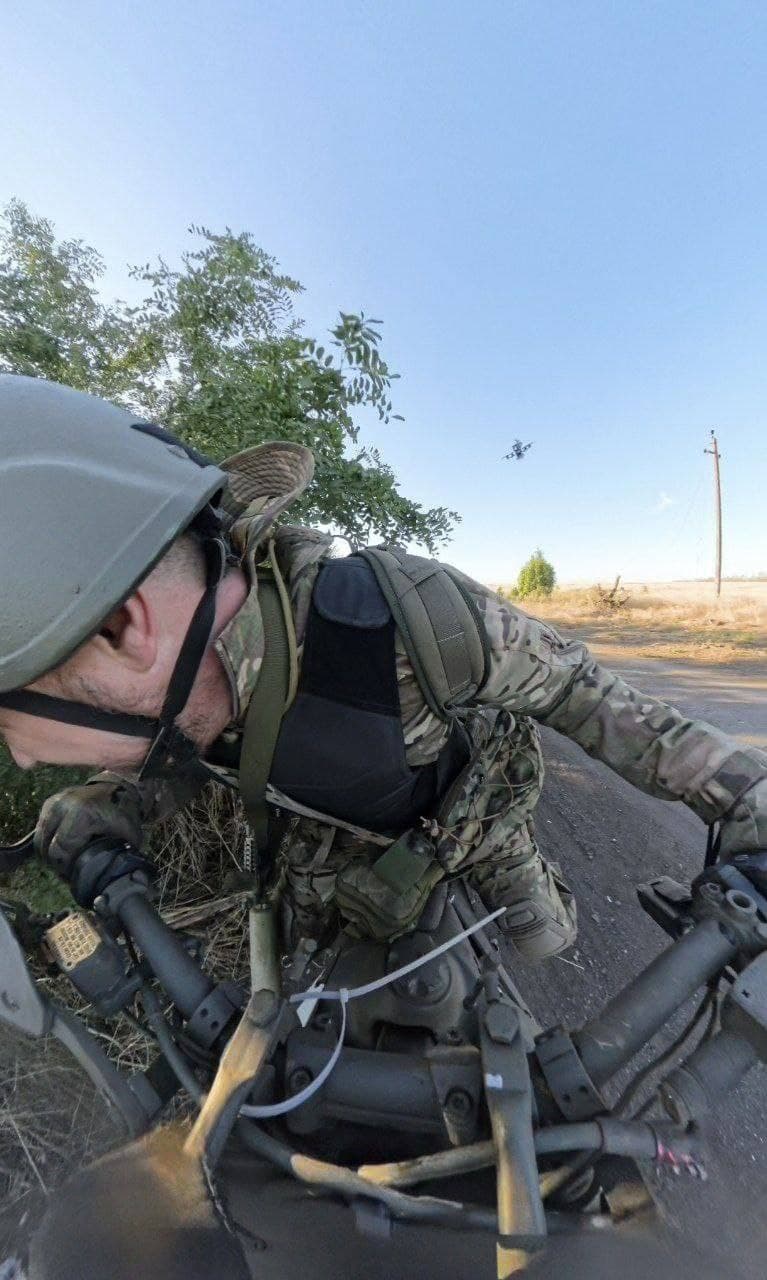Russian War Journalist Andrew Filatov Presumed Dead After FPV Drone Strike
MOSCOW, October 3, 2023 — Andrew Filatov, a prominent Russian war journalist known for his coverage of the ongoing conflict in Ukraine, is presumed dead following an FPV (first-person view) drone strike that occurred early this morning. Filatov, who had amassed a significant following of nearly 170,000 on social media, lost contact shortly after the strike, which took place in a region heavily affected by warfare. Local authorities have confirmed that his personal belongings, including a motorcycle, were discovered at the scene, raising grave concerns about his fate.
Filatov had been an influential voice in war reporting, often sharing firsthand accounts and insights from the front lines. His sudden disappearance has sent shockwaves through the journalistic community, highlighting the extreme dangers faced by reporters covering conflicts in volatile regions. The use of FPV drones in warfare has surged in recent years, with such technology being employed for both reconnaissance and targeted attacks. This incident underscores the escalating risks journalists face while attempting to document the realities of war, as previously reported in various conflict zones around the world.
Witnesses in the area reported hearing the distinct sound of drones prior to the explosion, indicating a coordinated attack. As rescue teams scoured the vicinity for survivors, the absence of Filatov raised immediate fears that he may have been caught in the strike’s deadly radius. His last known communication, which occurred shortly before the attack, indicated he was preparing to report on military movements in the region. The lack of any confirmed sightings or hospital admissions since the strike has led many to conclude that he did not survive the incident. Colleagues and followers alike have taken to social media to express their condolences and share memories of his impactful work.
The implications of Filatov"s presumed death extend beyond personal loss; they highlight the broader threats to press freedom and the safety of journalists in conflict zones. Experts have long warned that the use of advanced military technology, such as drones, poses significant challenges for reporters seeking to provide accurate and timely coverage. The situation mirrors past incidents where journalists have been targeted in various conflicts, raising questions about accountability and the protection of media personnel in war-torn areas. In a similar situation, the recent developments in Syria illustrate the complex dynamics of reporting in regions where control oscillates between local forces and international actors.
The potential fallout from this incident could have far-reaching consequences not only for the safety of journalists but also for public understanding of the ongoing conflict. As tensions escalate in Ukraine and surrounding regions, the loss of voices like Filatov’s may hinder the dissemination of crucial information. Media advocacy groups are likely to rally for increased protections for journalists, while calls for accountability regarding military actions that endanger civilian and media lives will intensify. The international community’s response to this incident could set a precedent for future engagements in conflict zones, influencing how military operations are conducted and how journalists operate.
As the situation develops, there is a pressing need for a comprehensive investigation into the circumstances surrounding Filatov"s presumed death. Calls for transparency and accountability are essential, not only to honor his legacy but also to ensure that the rights of journalists are upheld in the face of increasing hostility. The world must recognize the vital role that journalists play in chronicling history and holding power to account, especially in times of conflict. The future of war reporting may hinge on how effectively we protect those who risk their lives to tell these important stories.







![[Video] Gunfire between Iraqi security forces and Sadr militias in Baghdad](/_next/image?url=%2Fapi%2Fimage%2Fthumbnails%2Fthumbnail-1768343508874-4redb-thumbnail.jpg&w=3840&q=75)
